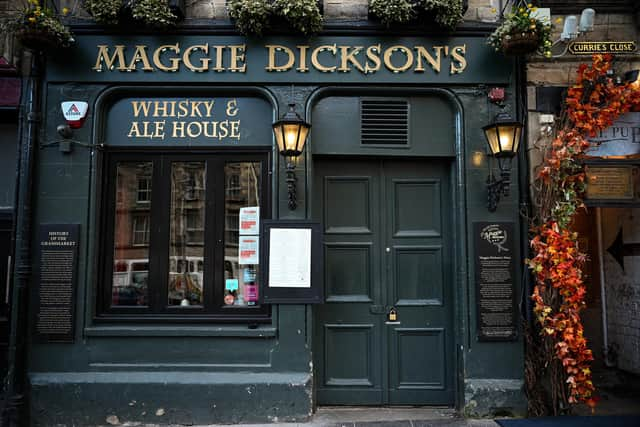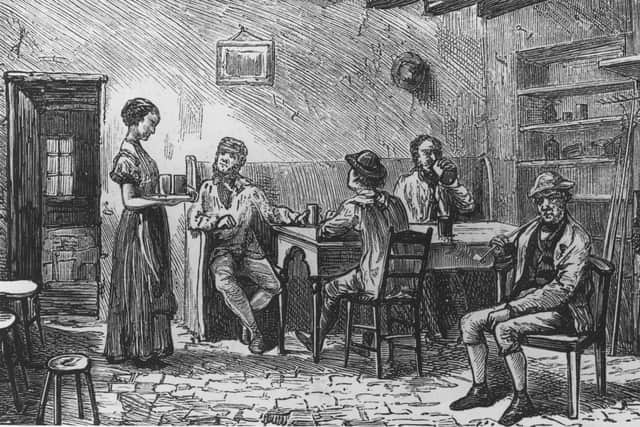Maggie Dickson: Here is the story behind Edinburgh's most famous attempted execution
and live on Freeview channel 276
Maggie Dickson was born in Musselburgh in the early 1700’s, and is famous in the Capital for surviving the hangman’s noose.
Although not a lot is known about her early life, it is thought that she married a fisherman in her home town in East Lothian, though left not long after.
Advertisement
Hide AdAdvertisement
Hide AdDifferent legends have her fleeing for many different reasons, running away with a lover, escaping a brutal husband to live in the North of England, or that her husband had abandoned her and she was compelled to leave.


Whatever the truth, it seems she ended up in the Scottish Borders, when she found out she was with child after a brief affair with the son of a local inn keeper, or the son of the home she was working in.
Again, there is not too much known about the following tragic events, whether she lost the child in the late stages, or whether it died shortly after being born, but whatever happened, she was found trying to abandon the body near the banks of the River Tweed.
She was arrested, charged and taken to Edinburgh to face trial.
Advertisement
Hide AdAdvertisement
Hide AdSome say she was tried under a Concealment of Birth Act, others that it was for murder after deliberately causing the death of her child.


Either way, at the end of what would have been an extraordinarily traumatic trial for Maggie, she was found guilty and sentenced to death.
On September 2, 1724, Maggie was taken to the Grassmarket and hanged.
With many recently hanged 'criminals’, the medical school would often be offered the body to help with their work, however, Maggie’s friends and family were able to claim her, and place her in a coffin ready to be taken back to East Lothian to be buried.
Advertisement
Hide AdAdvertisement
Hide AdEn route, the lid of the coffin was opened – with some tales claiming the family heard her knocking - and Maggie was found to be very much alive, suffering few physical ill effects of the noose.
One story goes that she was promptly dragged back to court to undergo the process again, when one flustered Advocate burst in and demanded the proceedings end.
Maggie had already been charged, tried and her sentence carried out, he shouted, and due to double jeopardy, this could not happen again.
She was free to go.
Another story claimed that the failure of the execution was seen as divine intervention and she was blessed by God, and so should be left living free.
Advertisement
Hide AdAdvertisement
Hide AdSupposedly, many said that Maggie would tell people she survived because the rope was deliberately made to snap early after the drop, a trick she had prearranged with the rope maker.
Others thought that it was luck, or fate, or true justice after the brutality of the charges and sentence.
Whatever the reason, Maggie lived happily for almost another 50 years in East Lothian.
The details of the story has changed over the years, along with the character of Maggie herself, with many legends naming her a seductress, a child murder, a manipulator, a victim.
Advertisement
Hide AdAdvertisement
Hide AdWhatever the actual truth, her name has been infamous in Edinburgh for centuries, and will be for centuries to come.